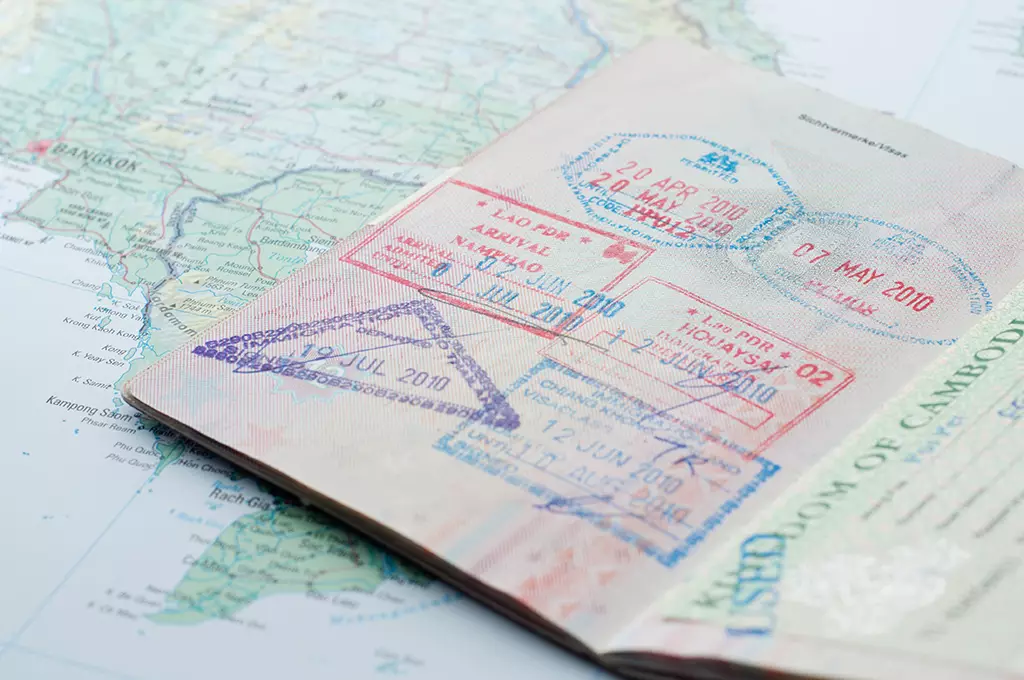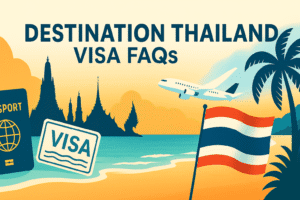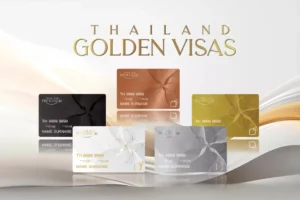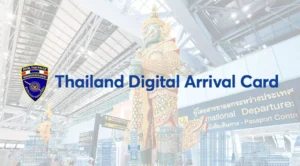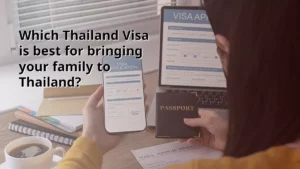As of July 15, 2024, the new regulations surrounding the Thailand Visa on Arrival program and the Thailand visa exemption scheme announced earlier in the year are now in full effect. These rule updates will allow more people than ever before to visit Thailand without first having to apply for a visa at the embassy in their home country. This further supports the Thai government’s plan to increase the number of foreign tourists to 40 million by the end of the year.
This post will break down the updates to both the visa exemption and VOA programs, explain how visitors can take advantage, and list the eligible countries.
Thailand Visa on Arrival
To boost efforts to increase tourism in the country, the Thai government has made citizens from 31 countries eligible to acquire a single-entry visa after arriving in Thailand at certain immigration checkpoints (such as Thai international airports). This is a significant increase from the previous list of only 19 countries.
For only 2,000 baht, visitors will be allowed to stay in Thailand for no more than 15 days and take part in any activity allowed by the standard Thailand Tourist Visa. Unlike visa exemptions which we will get into below, the Visa on Arrival Thailand cannot be extended except in rare cases, such as an illness that prevents travel.
The following countries are eligible for the VOA program:
- Africa: Ethiopia, Namibia, Seychelles, Tunisia
- Asia: Armenia, Bhutan, China, India, Kazakhstan, Kyrgyzstan, Taiwan, Uzbekistan
- Central America: Costa Rica, El Salvador, Mexico
- Europe: Belarus, Bulgaria, Georgia, Malta, Romania, Russia, Serbia
- Middle East: Cyprus, Saudi Arabia
- Oceania: Fiji, Nauru, Papua New Guinea, Vanuatu
- South America: Bolivia, Paraguay, Venezuela
Those seeking a Thailand Visa on Arrival will need to submit the following documentation at the immigration checkpoint:
- The relevant completed application form (this can be acquired at the port of entry)*
- Valid passport with no less than a month’s validity remaining
- Recent passport-sized photograph (taken within the last 6 months)
- A return travel ticket (as proof you will not stay longer than 15 days in Thailand)
- Proof of temporary accommodation in Thailand (such as a hotel itinerary)
- Evidence of sufficient funds (10,000 Baht for individuals, 20,000 Baht for families)
*The application form can also be completed online on the Thai Immigration Bureau’s website
Visa Exemption in Thailand
This immigration rule update also increased the number of countries approved for visa exemption from 57 to 93. Citizens of these countries will now be able to stay in Thailand for up to 60 days (an increase from the old 30-day rule) without requiring a visa. Nationals from authorized countries can simply travel to Thailand and will receive a “visa exempt” stamp in their passport from Thai immigration, which acts as a travel document.
The 60-day stay can also be extended for another 30 days (at the discretion of Thai Immigration) enabling foreigners to reside for a total of 90 days. This must be done in person at Thai Immigration and will require a small fee.
Before the 90-day deadline, Thai visa-exempt travelers also have the option of applying for a new visa to let them stay in Thailand even longer. During their stay, foreign nationals are also permitted to seek urgent or ad-hoc work in the country as well as engage with tourist businesses.
The 93 countries eligible for the visa exemption scheme include:
- Africa: Mauritius, Morocco, South Africa
- Americas: Brazil, Canada, Colombia, Cuba, Dominica, Dominican Republic, Ecuador, Guatemala, Jamaica, Mexico, Panama, Peru, Trinidad and Tobago, United States, Uruguay
- East/Central Asia: Bhutan, Brunei, Cambodia, China, Hong Kong, India, Indonesia, Japan, Kazakhstan, Laos, Macao, Malaysia, Maldives, Mongolia, Philippines, Singapore, South Korea, Sri Lanka, Taiwan, Uzbekistan, Vietnam
- Europe: Albania, Andorra, Austria, Belgium, Bulgaria, Croatia, Czech Republic, Denmark, Estonia, Finland, France, Georgia, Germany, Greece, Hungary, Iceland, Ireland, Italy, Kosovo, Latvia, Liechtenstein, Lithuania, Luxembourg, Malta, Monaco, Netherlands, Norway, Poland, Portugal, Romania, Russia, San Marino, Slovak Republic, Slovenia, Spain, Sweden, Switzerland, Ukraine, United Kingdom
- Middle East: Bahrain, Cyprus, Israel, Jordan, Kuwait, Oman, Qatar, Saudi Arabia, Turkey, United Arab Emirates
- Oceania: Australia, Fiji, New Zealand, Papua New Guinea, Tonga
In addition, 3 countries have entered into bilateral agreements with Thailand, allowing foreign nationals to enter under the Thailand visa exemption status at international airports only:
- Argentina
- Chile
- Myanmar
To enter the Kingdom under the Thailand visa exemption scheme, a passport is usually the only document required. However, the border agent may request additional information that must be provided to secure entry. These documents include:
- A return travel ticket
- Proof of sufficient financials (10,000 THB per person, or 20,000 THB per family)
- Proof of temporary accommodation in the country (e.g., hotel booking itinerary)
Need Assistance? Contact Siam Legal
If you have any further questions about these programs or their recent updates, contact the Thai visa consultants at Siam Legal. Or, if you’ve gotten a taste of Thailand and want to apply for a long-term visa, we provide expert services to help you get your Thai visa swiftly and successfully.
Siam Legal boasts professional teams of bilingual attorneys and visa consultants who have been helping foreigners resolve immigration and legal issues for over 20 years now. If you or your family require different immigration solutions or assistance with legal matters in Thailand, we will provide personalized services to find the ideal resolution for your needs.
Contact Siam Legal today to get started!







